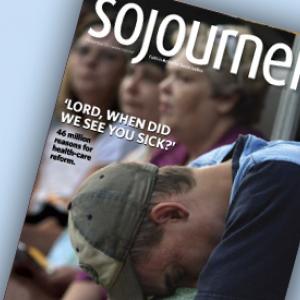E.J. Dionne Jr. is an author, a columnist for The Washington Post, and a senior fellow at the Brookings Institution.
Posts By This Author
A 'Bizarre and Peculiar' Ruling
IF THE FIRST decade of the 21st century began with the Supreme Court’s Bush vs. Gore ruling that selected a U.S. president, it ended with another decision that was also conspicuous as a departure from long democratic precedent. And like Bush vs. Gore, it was a case of judicial activism tilting the electoral system toward conservative interests and outcomes.
The Court’s 5 to 4 decision in Citizens United vs. Federal Election Commission on Jan. 21, 2010, allowed the use of corporate and union money in unlimited sums to influence election campaigns. Citizens United was, all at once, a truly remarkable piece of judicial activism, a precedent-shattering evisceration of a century-long tradition of limiting corporate power in American politics, a break with the republican tradition’s well-founded fear of political corruption, and a direct interference with the electoral rules in a way that favored those who had put the conservative justices in a position to make the ruling in the first place.
The case arose when Citizens United, a conservative group, brought suit arguing that it should be exempt from the restrictions of the 2002 McCain-Feingold campaign finance law for a movie it made that was sharply critical of Hillary Clinton, at the time a presidential candidate. The organization argued that, as a First Amendment matter, it should not be required by law to disclose who financed the film.
The conservative majority’s determination to go far beyond the specifics of the case it was considering became clear in June 2009 when the Court, in a remarkable act of overreach, postponed a decision and called for new briefs and a highly unusual new hearing. It chose to consider an issue only tangentially raised in the original case by calling into question a 1990 decision that upheld the long-standing ban on the use of corporate money in campaigns. As Justice John Paul Stevens noted later in his scalding dissent, “Essentially, five justices were unhappy with the limited nature of the case before us, so they changed the case to give themselves an opportunity to change the law.”
46 Million Reasons for Health-Care Reform
The moral imperatives for change.
Is It Still a Wonderful Life?
Building a new politics on the old values of generosity, compassion, and community.
The Overlooked Schism
America's religious communities and the battle over government.
A Thorn In Both Their Sides
If the church causes discomfort only to one political party when both are in need of repentance, it is not being the church.
Can't Buy Me Love
Why the language of the marketplace shouldn't rule our moral and political thinking.
Compassion is good, but justice is better
Charitable choice has to be seen as part of a broader effort to strengthen civil society as a whole.





